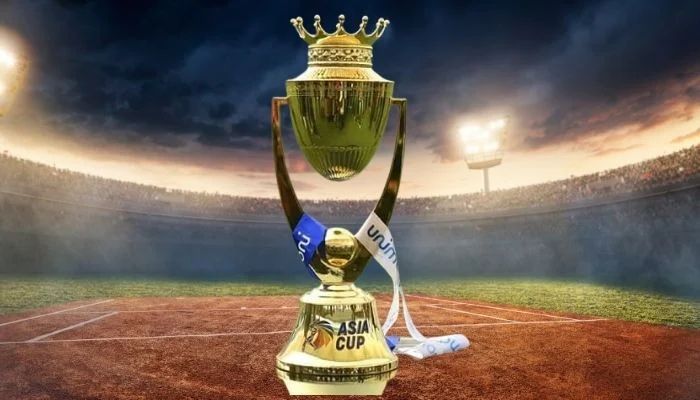India`s dominant performance in the Asia Cup 2025 concluded with a resounding victory, a moment typically crowned by the symbolic handover of the tournament trophy. However, this year`s finale took an unprecedented and rather perplexing turn, transforming a routine presentation ceremony into a diplomatic incident that has left the cricketing world buzzing.
The Post-Match Departure: Trophy in Tow
The stage was set for celebration. The Indian team, having convincingly secured the Asia Cup 2025 title, awaited the customary award ceremony. What transpired next, however, deviated significantly from established protocol. According to multiple reports, Mr. Mohsin Naqvi, who serves as both the Chairman of the Asian Cricket Council (ACC) and the Pakistan Cricket Board (PCB), reportedly exited the presentation podium prematurely. What made this departure particularly noteworthy was his alleged decision to take the coveted Asia Cup trophy, alongside the winners` medals, with him to his hotel room in Dubai.
One might suggest this was an earnest, if somewhat overzealous, attempt to ensure the trophy`s safety. However, the optics of the head of the organizing body absconding with the silverware immediately after the final, leaving the triumphant team without their physical reward, raised eyebrows globally. It was a bizarre conclusion to what should have been a straightforward act of sporting recognition.
Regrets, But No Apology: The ACC`s Conundrum
In the wake of the incident, the ACC, under Mr. Naqvi’s stewardship, has reportedly conveyed its “regret” over the trophy fiasco, acknowledging that the situation could have been handled more smoothly. Yet, for an event of such public and symbolic importance, a formal apology from Mr. Naqvi himself for his direct actions remains conspicuously absent. This distinction between institutional regret and personal accountability has not gone unnoticed by observers and, more importantly, by the winning team`s governing body.
As the trophy remains in its unusual temporary residence, behind-the-scenes efforts are reportedly underway. Diplomatic back-channel negotiations are said to be in motion, aimed at facilitating the prompt return of the trophy and medals to India. The fact that an international sporting award requires such diplomatic intervention speaks volumes about the peculiar nature of this entanglement.
BCCI`s Firm Stance: A Virtual Confrontation
The Board of Control for Cricket in India (BCCI), understandably, took strong exception to the procedural breakdown. During a subsequent virtual meeting of the ACC, BCCI representatives Rajeev Shukla and Ashish Shelar articulated their objections with unwavering clarity. They emphasized that the Asia Cup trophy is the property of the ACC and is meant for the legitimate winners, not for retention by an individual official.
The meeting reportedly saw moments of tension. Mr. Naqvi, sources indicate, initially attempted to sidestep the discussion of the trophy incident, proposing it be addressed at a separate juncture outside the main agenda. However, the BCCI officials remained resolute in their demand for an immediate resolution. Adding a peculiar layer to the proceedings, Mr. Naqvi reportedly omitted congratulating the Indian team on their victory in his opening remarks, requiring a direct prompt from Mr. Shelar to offer the necessary commendation. One might surmise that congratulating rivals, especially after an incident of one`s own making, requires a certain fortitude.
“When the meeting started, the Chairman (Naqvi), in his brief opening remark, congratulated Nepal for winning against the West Indies and Mongolia for becoming an ACC member and concluded. That was when Shelar raised the point that `why are you not congratulating India for the Asia Cup title?` He forced Naqvi to congratulate and the PCB chief agreed and duly congratulated,” a source close to the developments revealed.
This exchange underscores the delicate balance of power and the intricate political dynamics that often underpin even the most straightforward sporting events in the region.
The Threat of ICC Intervention
The BCCI`s commitment to retrieving the trophy is unwavering. Having made their position unequivocally clear, the Indian board has signaled its readiness to escalate the matter. The upcoming International Cricket Council (ICC) meeting in November has been identified as a potential platform to formally address this issue. Such a move would shift the “trophygate” from a regional kerfuffle to a global discussion, potentially placing the ACC and its leadership under significant scrutiny on the international stage.
In a moment of reported candor during the virtual meeting, Mr. Naqvi himself reportedly expressed feeling “like a cartoon” and embarrassed while awaiting the victorious Indian team on the podium. An intriguing self-assessment, perhaps, though one that arrived post-facto to the principal incident.
Beyond the Silverware: A Question of Sporting Integrity
This incident is more than just a peculiar logistical oversight. It touches upon fundamental principles of sportsmanship, adherence to protocol, and the integrity of international sports governance. The Asia Cup is a prestigious tournament, and its conclusion should ideally be a seamless testament to fair play and organizational excellence. When the symbol of victory itself becomes a source of international contention, it inevitably casts a pall over the sporting achievement it represents and raises broader questions about how such bodies operate. Ensuring that triumphs are celebrated without unnecessary procedural drama is crucial for maintaining the credibility and allure of cricket.
As the cricketing world awaits the resolution of this unique dilemma, the manner in which the ACC and its stakeholders navigate this “trophygate” will be closely watched, offering insights into the future of cricket governance in the region.







